
spouse to @fionawhim 🏳️🌈; THE CARETAKERS (War Graves gardeners in the French Resistance): https://t.co/TXsOxhAmpe; she/they
How to get URL link on X (Twitter) App





 If you probe it, the AI will apologize for making a "mistake." But the issue is not that it makes mistakes. The issue is that it deliberately invents an alternate reality. Then it portrays that invention as fact.
If you probe it, the AI will apologize for making a "mistake." But the issue is not that it makes mistakes. The issue is that it deliberately invents an alternate reality. Then it portrays that invention as fact.

 Thus, when the town of Cambridge made tax lists, Harvard presidents and professors did not appear, no matter what they owned. They didn't owe taxes! It was one of the perks of being affiliated with Harvard.
Thus, when the town of Cambridge made tax lists, Harvard presidents and professors did not appear, no matter what they owned. They didn't owe taxes! It was one of the perks of being affiliated with Harvard.https://twitter.com/cgdhopkins/status/1101213468429037568?s=20&t=yAoHTjsejN270RerSNeprw

 When I was the Harvard and Slavery Research Associate, I was under a lot of pressure to write about abolitionists at Harvard. Instead of writing about Charles Sumner (again), I wrote about Joshua Bowen Smith, who is not widely recognized at Harvard. I'm glad to see this included.
When I was the Harvard and Slavery Research Associate, I was under a lot of pressure to write about abolitionists at Harvard. Instead of writing about Charles Sumner (again), I wrote about Joshua Bowen Smith, who is not widely recognized at Harvard. I'm glad to see this included.

https://twitter.com/kylebroberts/status/1379802416326057986Lydia Dyar, a 79-year-old shopkeeper from Boston, "left a good Estate & came into ye Country . . . to escape ye abuce of ye Ministerial Troops sent by GEORGE ye 3d to subject North America to Slavery."


 It was a good bookcase. It was like 7 feet tall and on wheels that could be locked. Very heavy. I liked it because I could roll it in front of the door during lockdown drills and then roll it back into place without freaking out the 7yos by destroying the room.
It was a good bookcase. It was like 7 feet tall and on wheels that could be locked. Very heavy. I liked it because I could roll it in front of the door during lockdown drills and then roll it back into place without freaking out the 7yos by destroying the room.
https://twitter.com/BreeNewsome/status/1347805249143246854Harvard actively recruited enslavers in both the 18th and 19th centuries. It bent over backwards to accommodate the sons of Caribbean sugar planters and Southern plantation owners. It changed the rules for them, formally releasing them from the rules that governed other students.
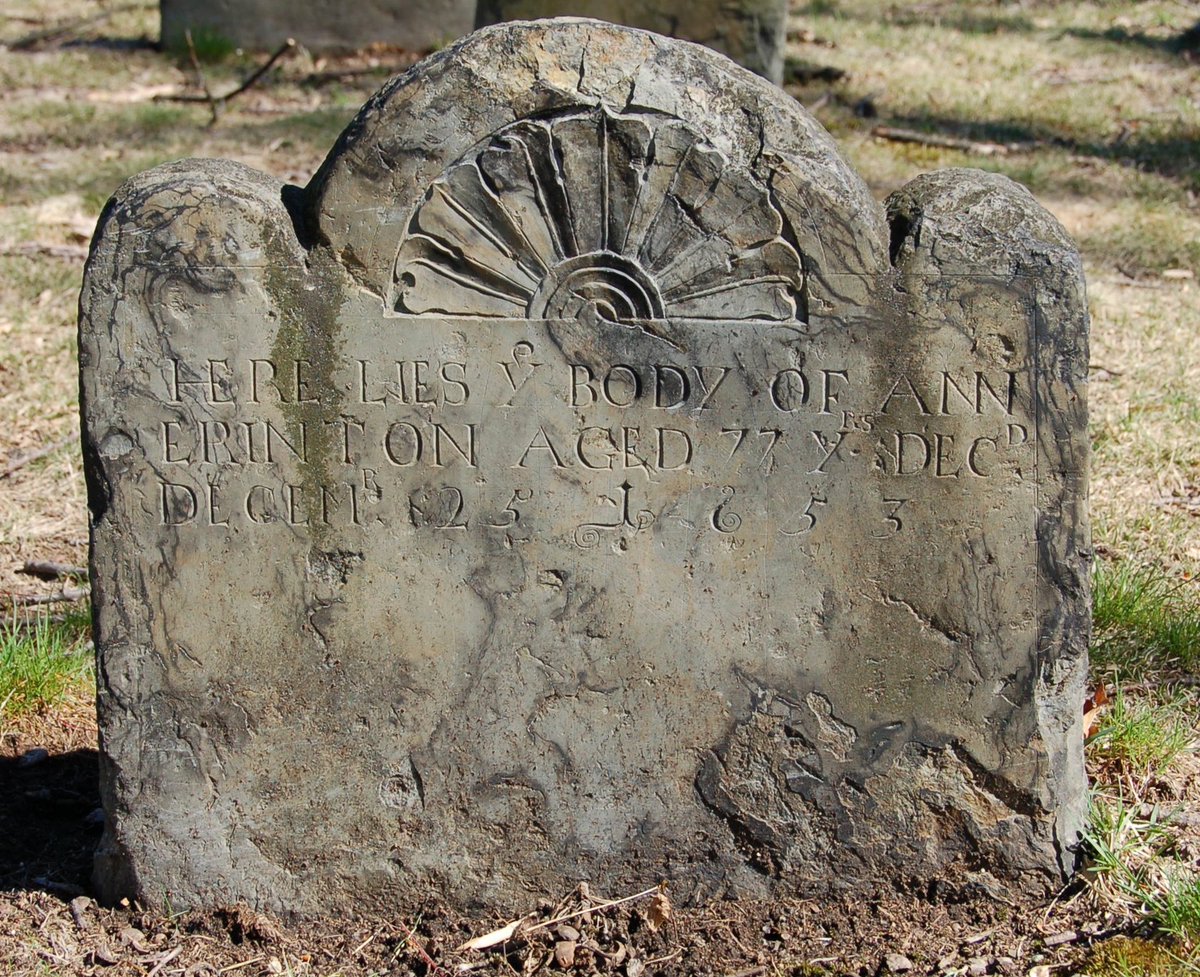

 I think it's more likely that Ann Erinton's stone was carved in 1677-ish when Abraham Erinton died (also Cambridge, MA, Harvard Square Burying Ground).
I think it's more likely that Ann Erinton's stone was carved in 1677-ish when Abraham Erinton died (also Cambridge, MA, Harvard Square Burying Ground). 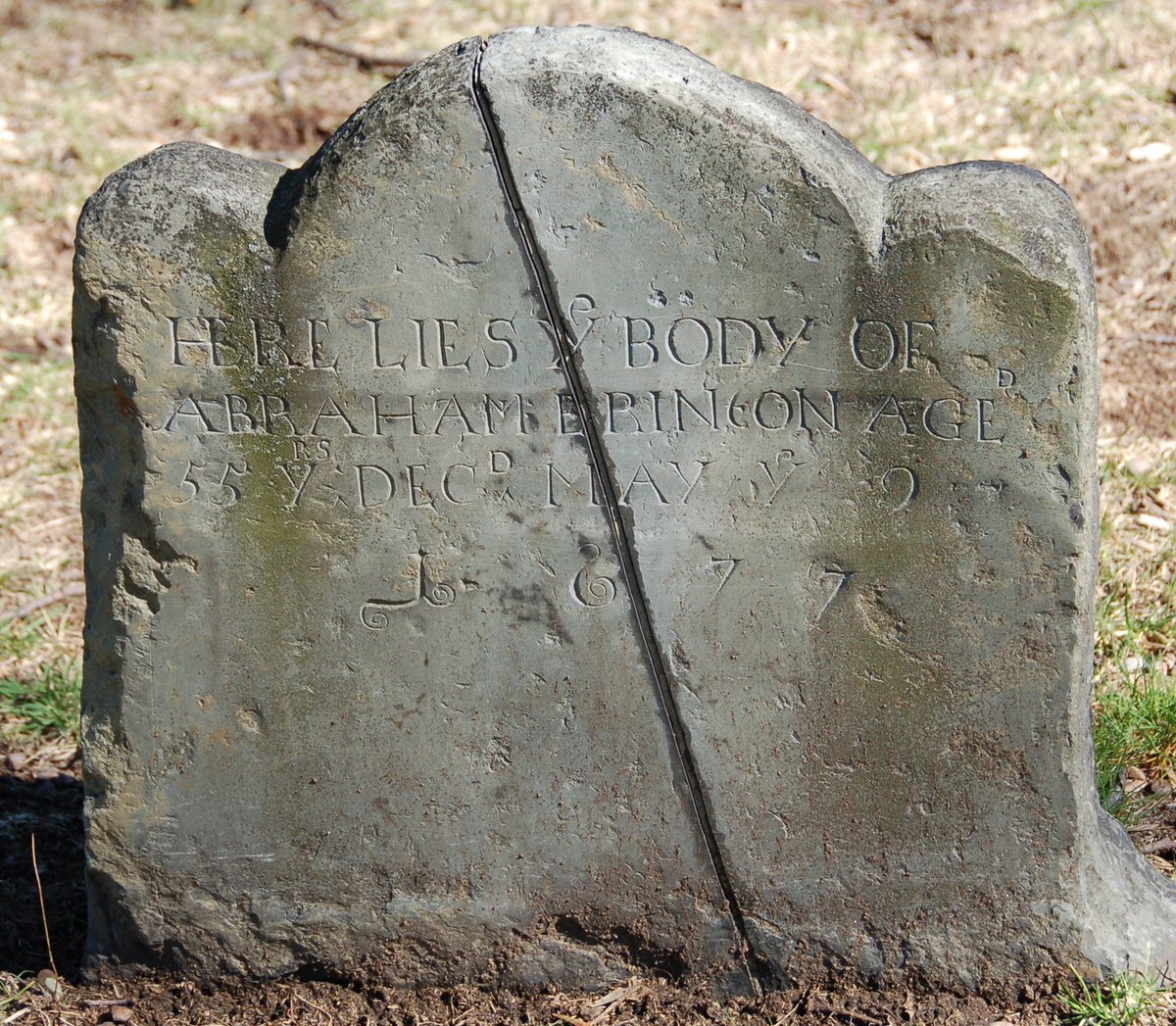


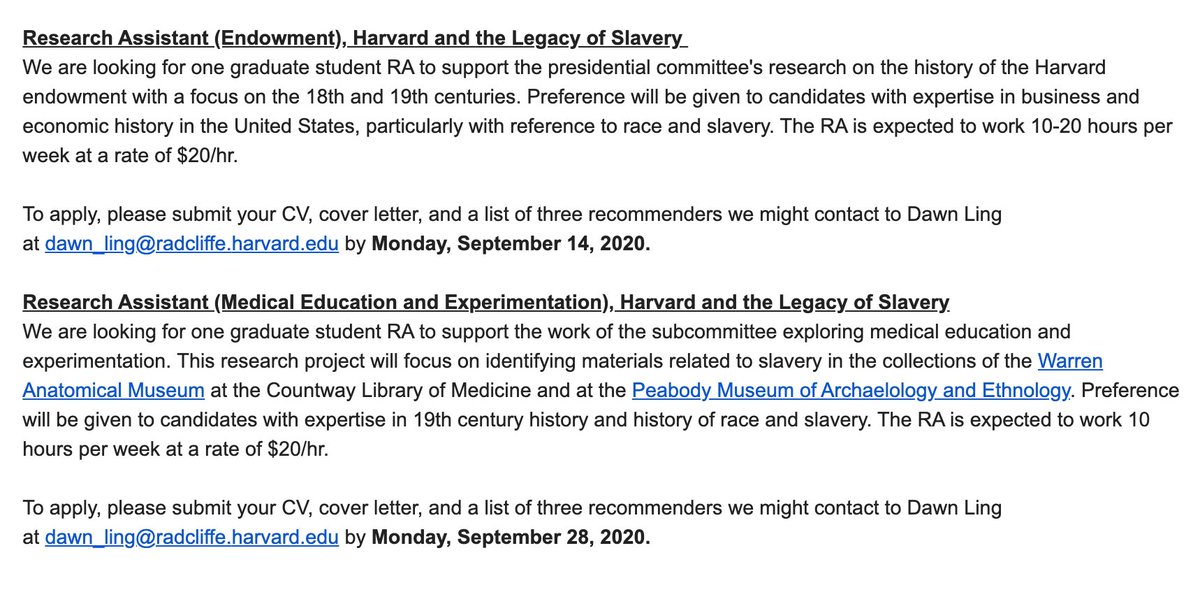 1) Your research will be a smokescreen for Harvard to say they are working on Harvard and Slavery, but you will not receive the resources and opportunities you need to be successful. Your cheap ($20/hr) labor will cover for Harvard's failure to invest in long-term sustainability.
1) Your research will be a smokescreen for Harvard to say they are working on Harvard and Slavery, but you will not receive the resources and opportunities you need to be successful. Your cheap ($20/hr) labor will cover for Harvard's failure to invest in long-term sustainability.
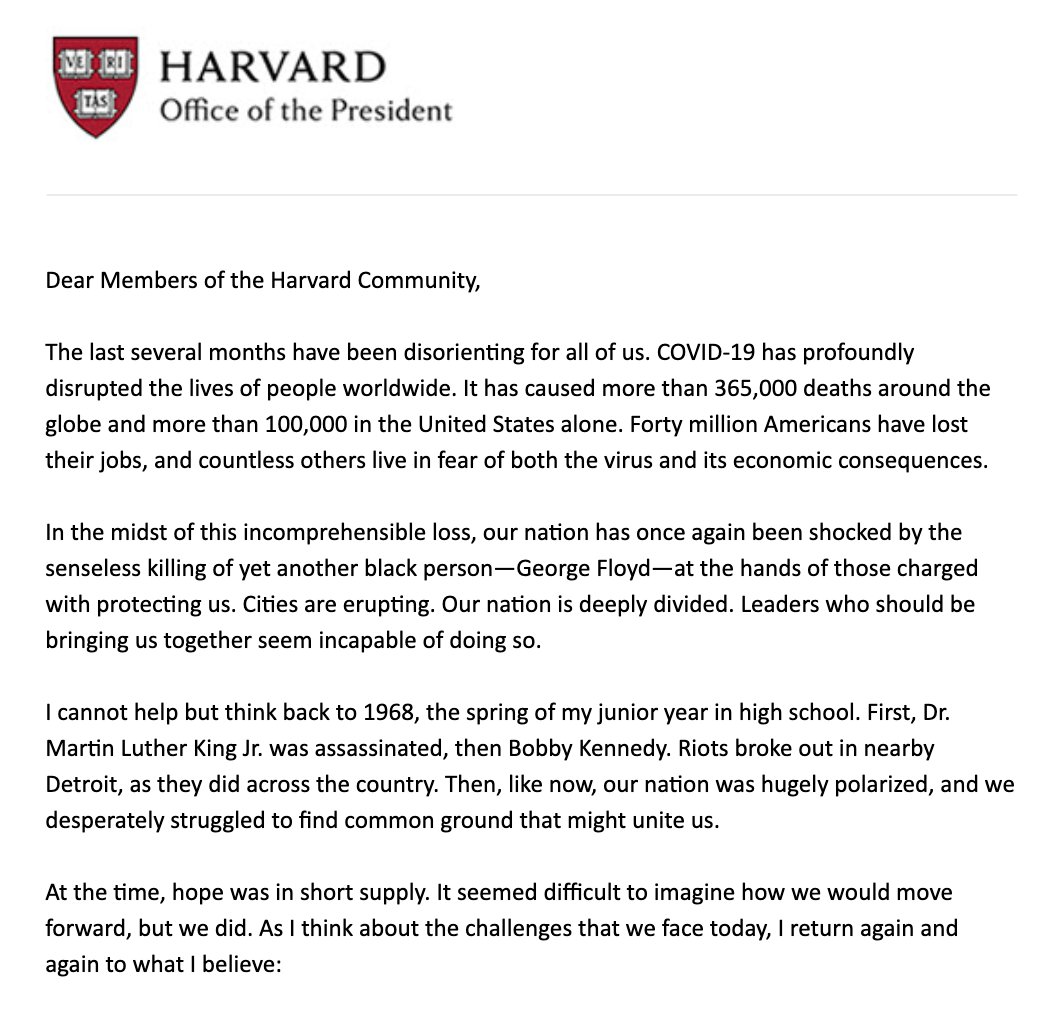

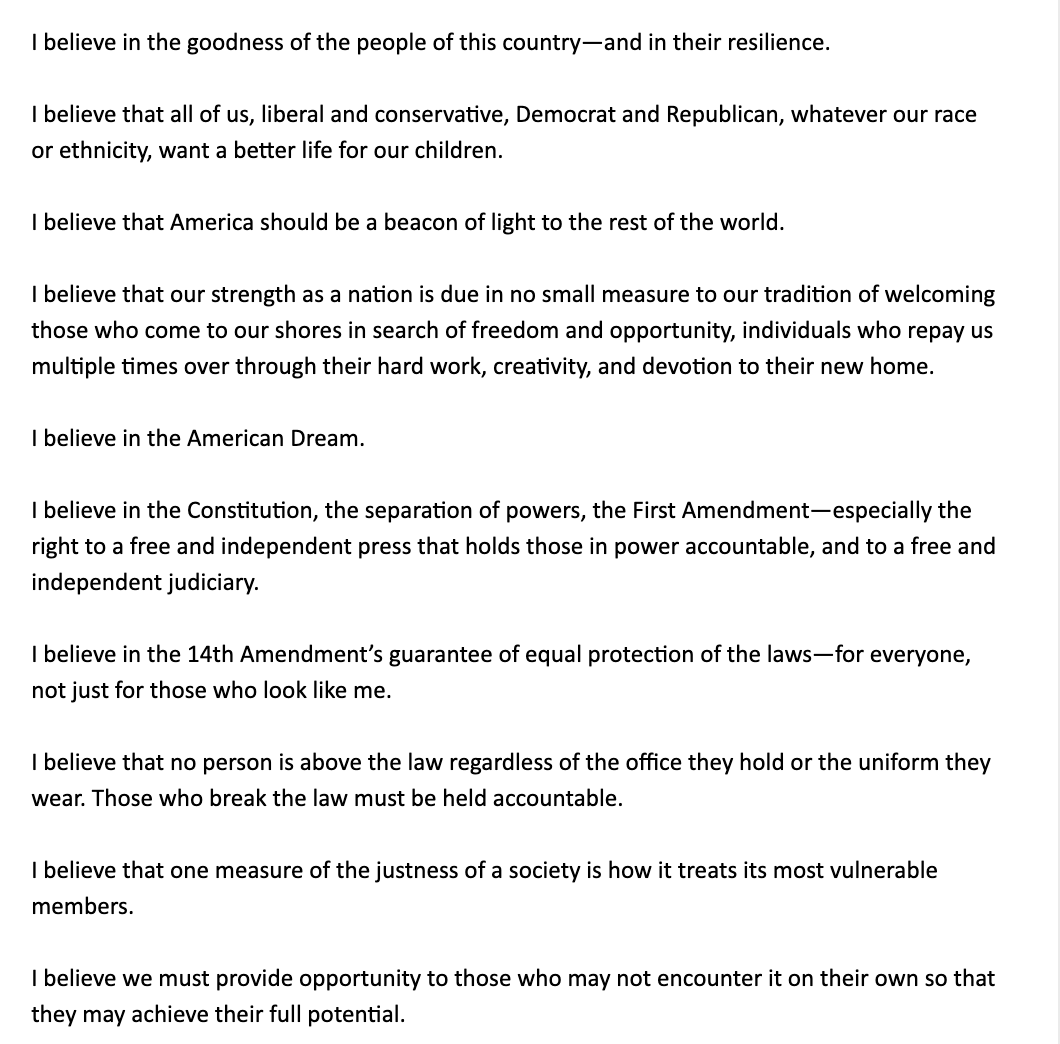
 I was the Harvard and Slavery Research Associate for two years and have taught a seminar called "Harvard and Slavery" twice, so let's dispense with the "I Believe" and go to "I Know."
I was the Harvard and Slavery Research Associate for two years and have taught a seminar called "Harvard and Slavery" twice, so let's dispense with the "I Believe" and go to "I Know."
https://twitter.com/NicholasGuyatt/status/1220016724688482305Prince Demah (1741-1778) was a talented artist (one of his portraits is currently on display at the Met). His mother, Daphney, was enslaved by Henry and Christian Barnes, a rich white couple from Marlborough, Massachusetts.

 In 1860, a column ran on the front page of the Boston Evening Transcript: “Many persons imagine that Mother Goose is a myth — that no such person ever existed. This is a mistake. Mother Goose was not only a veritable personage, but was born and resided many years in Boston.”
In 1860, a column ran on the front page of the Boston Evening Transcript: “Many persons imagine that Mother Goose is a myth — that no such person ever existed. This is a mistake. Mother Goose was not only a veritable personage, but was born and resided many years in Boston.”


 Another stone nearby is for Cecily, who was 15 when she died in 1714 (enslaved by Harvard Treasurer William Brattle).
Another stone nearby is for Cecily, who was 15 when she died in 1714 (enslaved by Harvard Treasurer William Brattle). 

 Smith worked as a waiter and later opened his own catering business.
Smith worked as a waiter and later opened his own catering business. 
